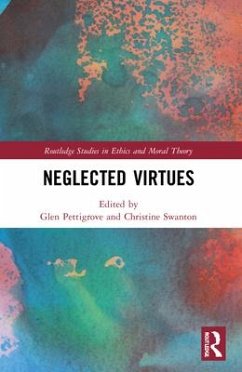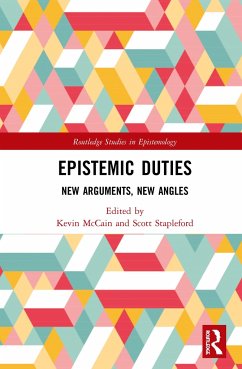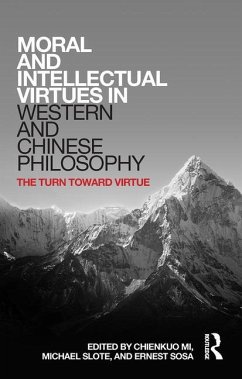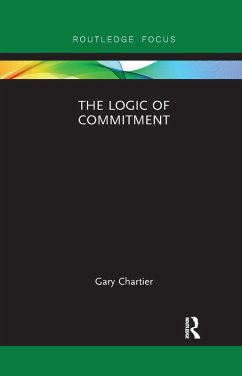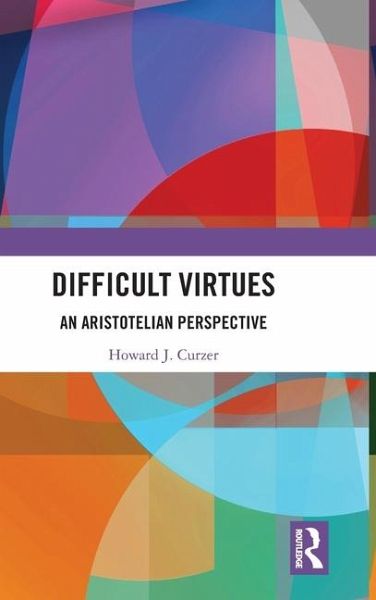
Difficult Virtues
An Aristotelian Perspective
Versandkostenfrei!
Versandfertig in 6-10 Tagen
144,99 €
inkl. MwSt.
Weitere Ausgaben:

PAYBACK Punkte
72 °P sammeln!
In this book, Howard J. Curzer describes eight virtues that have proven problematic to virtue ethicists. Integrity has been the subject of wildly different accounts. Open-mindedness and forgiveness are described in ways that many endorse, but few seek to practice. Accounts of tolerance and civility generally fit only the privileged. Finally, good timing, ambition, and creativity have attracted almost no attention at all. Curzer offers novel, plausible accounts of all of these eight difficult virtues, and demonstrates that they possess the standard features of Aristotelian virtues (for example,...
In this book, Howard J. Curzer describes eight virtues that have proven problematic to virtue ethicists. Integrity has been the subject of wildly different accounts. Open-mindedness and forgiveness are described in ways that many endorse, but few seek to practice. Accounts of tolerance and civility generally fit only the privileged. Finally, good timing, ambition, and creativity have attracted almost no attention at all. Curzer offers novel, plausible accounts of all of these eight difficult virtues, and demonstrates that they possess the standard features of Aristotelian virtues (for example, conformity to the Doctrine of the Mean). This enlarges the scope of Aristotelian virtue ethics by enabling it to cover eight additional spheres of human life.
Using these difficult virtues as springboards and extrapolating from some of Aristotle's remarks, Curzer codifies some standard features of Aristotelian virtues, and speculatively suggests additional features to enhance thedescriptive and prescriptive power of Aristotelian virtue ethics. Thus, Curzer adds to the standard list of Aristotelian virtues and to the standard list of features that make virtues Aristotelian.
Each difficult virtue is different, but certain themes thread through all of them: self-construction, social critique, and significant creation. Curzer's accounts of these virtues illuminate the ways people forge their own identities, struggle to acquire virtue despite disadvantage, and produce and appreciate novelty.
Using these difficult virtues as springboards and extrapolating from some of Aristotle's remarks, Curzer codifies some standard features of Aristotelian virtues, and speculatively suggests additional features to enhance thedescriptive and prescriptive power of Aristotelian virtue ethics. Thus, Curzer adds to the standard list of Aristotelian virtues and to the standard list of features that make virtues Aristotelian.
Each difficult virtue is different, but certain themes thread through all of them: self-construction, social critique, and significant creation. Curzer's accounts of these virtues illuminate the ways people forge their own identities, struggle to acquire virtue despite disadvantage, and produce and appreciate novelty.





